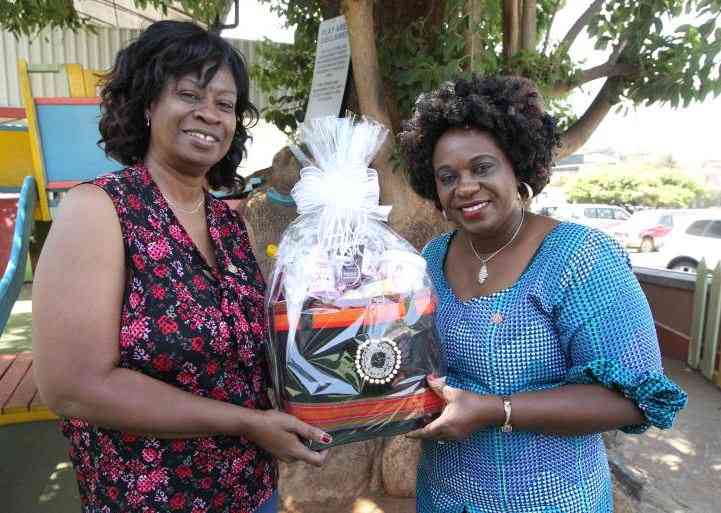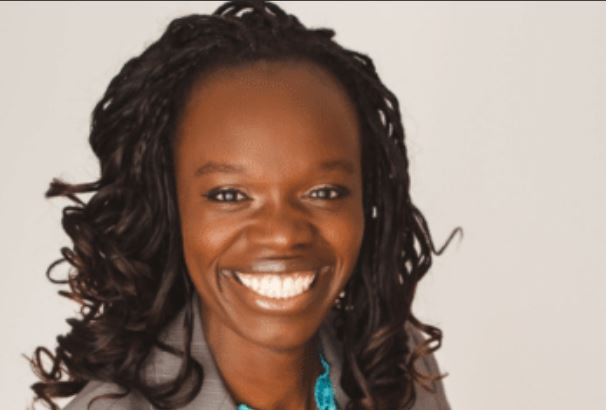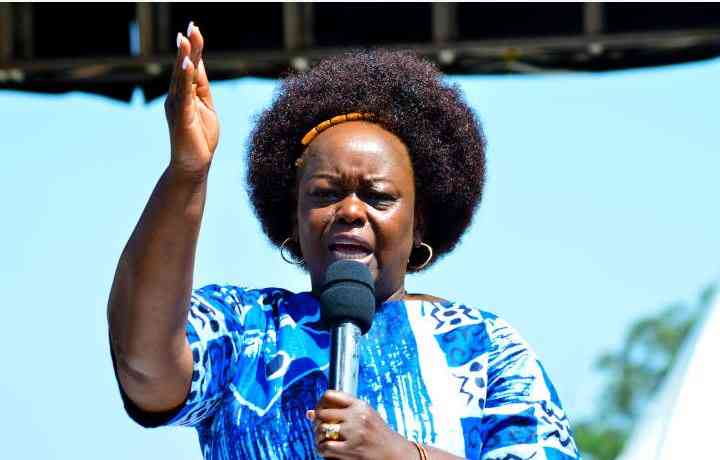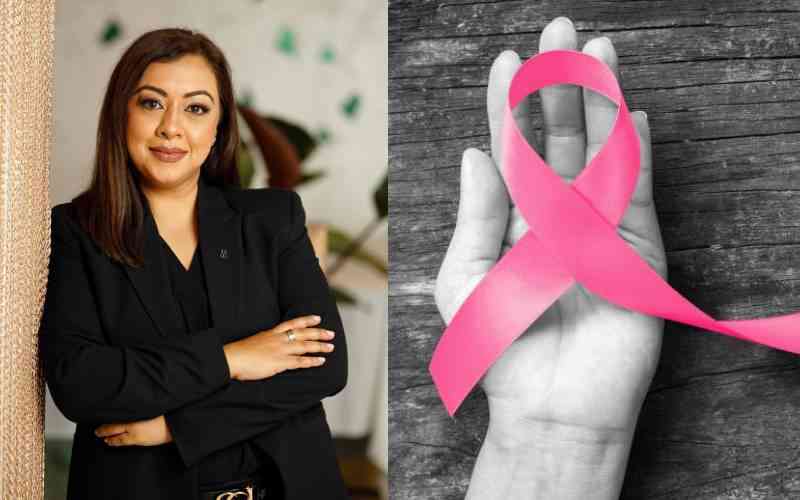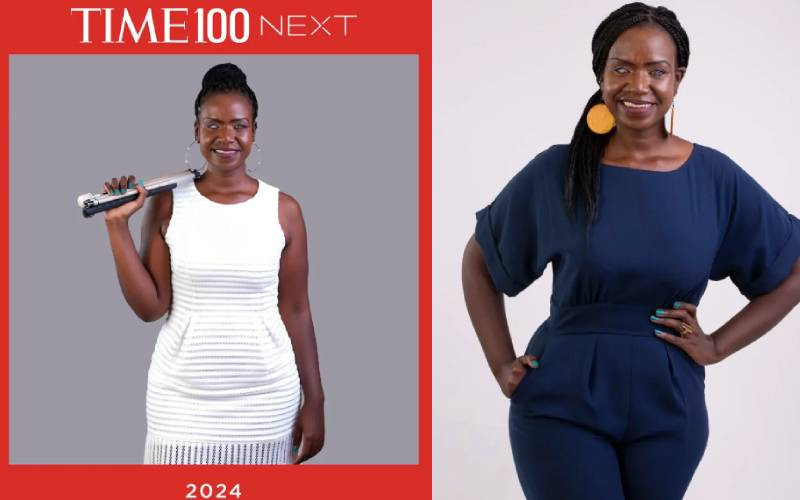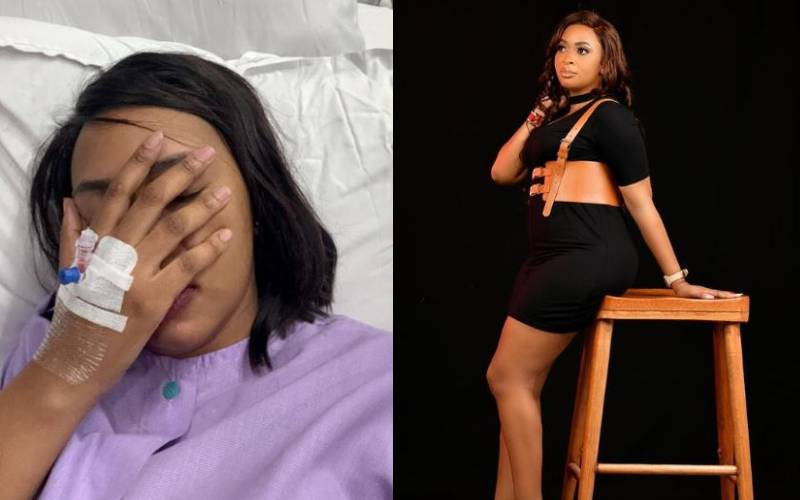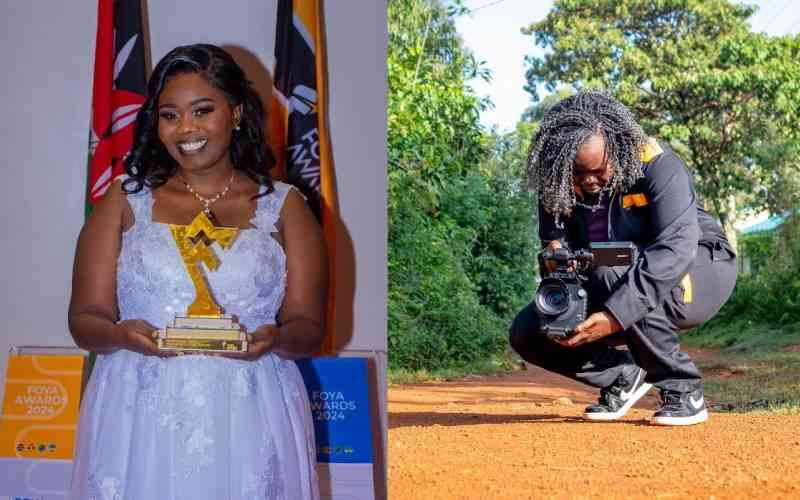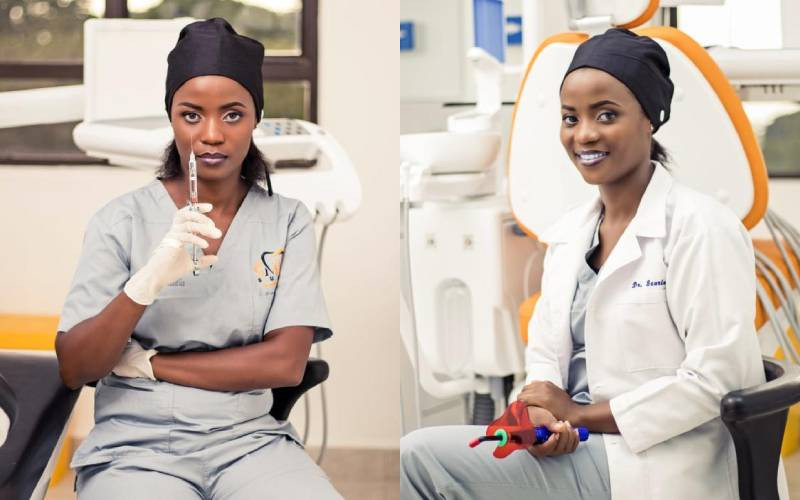
After being stigmatized for years following a rape ordeal, Wangu Kanja made it her life's mission to support other rape survivors. She talks to us about her journey of healing.
Wangu Kanja, 41, flashes back to 2002 when she was working as a marketing official for a taxi company.
“I got a call from a friend about a potential client who could bring in good business so I agreed to meet him and the client. The client was only available in the evening so I agreed to the meeting at Uhuru Estate in Buru Buru.”
Wangu says the meeting was successful and just as she was about to set out for the CBD at around 9pm, it started to rain.
Her friend told her and the client to wait he would drop them home once the rains had subsided.
“That happened at around 11pm. Since it was still cold and my friend lived nearby, he said we could pass by his house to pick up a sweater,” Wangu narrates.
On their way to his house, the trio did not notice it, but two cars were trailing them and when they reached Wangu friend’s house, five men approached their car.
“Everything happened so fast. They first demanded that we surrender our ATM cards and our PINs. Once we had given them the information and they had taken our valuables, they told us to get out of the car and tried to force us into my friend’s car boot. One of the men was overweight and we couldn’t fit, so they told us to get out,” she continues.

Wangu says the robbers let the men go but detained her as security to ensure the ATM PINs they had given were correct. She says four thugs went to look for the nearest ATM as one stayed behind with her.
Raped at gun point
“He took me at a place near City Stadium. Minutes passed as we waited for a signal that money had been withdrawn. All of a sudden, the man told me to take off my clothes but I refused. He repeated the instruction a couple of times and when he saw I wasn’t budging, he pulled out a gun and said I could choose to sleep with him or die,” Wangu narrates adding she was forced to give in.
A little while after she had been raped, the rest of the gang arrived with the money. Wangu says she feared the four men would gang rape her.
“I think they toyed with the idea but decided against it because it was close to dawn and people had already started going to work. I don’t think I would have allowed them to rape me. I would probably have told them to kill me because I wasn’t going to go through that ordeal again with four other men,” she says.
Released with Sh100 bus fare
Wangu says the thugs released her and gave her Sh100 to board a bus to the CBD.
“After the ordeal, I couldn’t think straight. Every man I saw appeared like a dark cloud, a shadow. I resented men,” she says.
As she headed towards the bus stop, she ran into policemen in a car and told them what had happened - but just the robbery. “I didn’t mention the rape. I didn’t want to relive it,” Wangu confesses.
The policemen already knew about the incident because her friends had reported the robbery at the police station. The officers volunteered to drive her home.
Wangu says she knew she should have rushed to the hospital but all she could think of was taking a shower.
“I felt so dirty and I just wanted to get rid of the filth so I threw away my clothes and took a shower. I kept cleaning myself and even wanted to use bleach to wash away all the dirt,” she narrates.
Accusing nurse
Wangu then told her sister about what had happened and she accompanied her to the police station to report the rape. But what they told her left her distraught and would be the beginning of a long walk of stigma.
Wangu says the officers did not record the rape in the OB. They only put in the robbery with violence.
“They asked me if I had a boyfriend and advised me not to tell him I was raped because he would dump me,” Wangu says.
Wangu says many people supposed to help rape survivors are insensitive. She encountered another round of insensitivity when she went to hospital.
“The nurse took an accusatory approach when questioning me. She asked me if I was indeed raped or if I had consented to sex and then changed my mind later and decided to accuse the man of rape.”
Wangu kept replaying that statement as she waited for her test results – including HIV. “The system was pathetic. That I had to wait in line in hospital along with other patients with minor conditions is sad. There should be a section in police stations and hospitals dedicated to dealing with cases of sexual violence,” she says.
Wangu says the nurse did not bother to explain her results to her and she had to turn to her nurse aunt.
The results were to be the beginning of another nightmare.
Contracting an STI
“When I gave my aunt the results, she gave me a look that showed me all was not well. I did not have HIV, but she asked me where I had picked an STI from.”
Fortunately, Wangu’s aunt was able to prescribe a treatment to not only get rid of the STI, but prevent pregnancy and HIV in case of any eventuality.
“I had to face the stigma of going to a chemist and asking for anti-retrovirals. The pharmacists looked at me as if I was this person with loose morals. They didn’t know my story, they just judged me.”
Depression and alcohol
Wangu went into depression and locked herself in her house for two months. When she finally started leaving the house, she would head for the bar.
“I was looking for something to drown my sorrows and I found that – or at least I thought I had – in alcohol. I would be in bars every day for about two years.”
During one of her drinking sprees, Wangu says she started to ponder about her life and thought – “This is not how I want my life to go. I may have been raped, but I do not have to give up in life.”
Enough is enough
A while later, she bumped into an advertisement for counselling courses at the Amani centre and decided to take them with the resolve that she wanted to save other rape survivors from going down the dangerous path of depression.
“The thing about taking counselling courses though, is that you have to undergo sessions yourself first before you can be certified. It is during these sessions that I realised that I had to deal with the scars from the rape before I could move ahead.”
With that, Wangu signed up for a renewal programme – Alabastron. She confronted her fears and accepted what had happened and decided to make the best out of the rest of her life. She, however, says that the healing process has been no walk in the park.
Helping others
In 2005, she formed the Wangu Kanja Foundation and it finally got registered in 2008. The organization aims to help victims of sexual violence, especially those from slums, access legal, psychological and medical help.
“It took me about 12 years to fully heal from the ordeal, forgive and to realise that not all men are evil. I now even have male friends.”
The Wangu Kanja Foundation based in the Mukuru kwa Njenga slum is also involved in advocacy. Wangu recently wrote to the President calling for more funds to be allocated towards the fight against sexual violence and the setting up of a dedicated office to report and solve cases. She cited the high cost of not addressing sexual violence.
“People don’t realise that it is more expensive to ignore it than to do something about it.”
In conclusion, Wangu urges people not to shy away from speaking out against sexual violence. “It is important for us to start the conversation.”
 The Standard Group Plc is a multi-media organization with investments in media platforms spanning newspaper print
operations, television, radio broadcasting, digital and online services. The Standard Group is recognized as a
leading multi-media house in Kenya with a key influence in matters of national and international interest.
The Standard Group Plc is a multi-media organization with investments in media platforms spanning newspaper print
operations, television, radio broadcasting, digital and online services. The Standard Group is recognized as a
leading multi-media house in Kenya with a key influence in matters of national and international interest.

